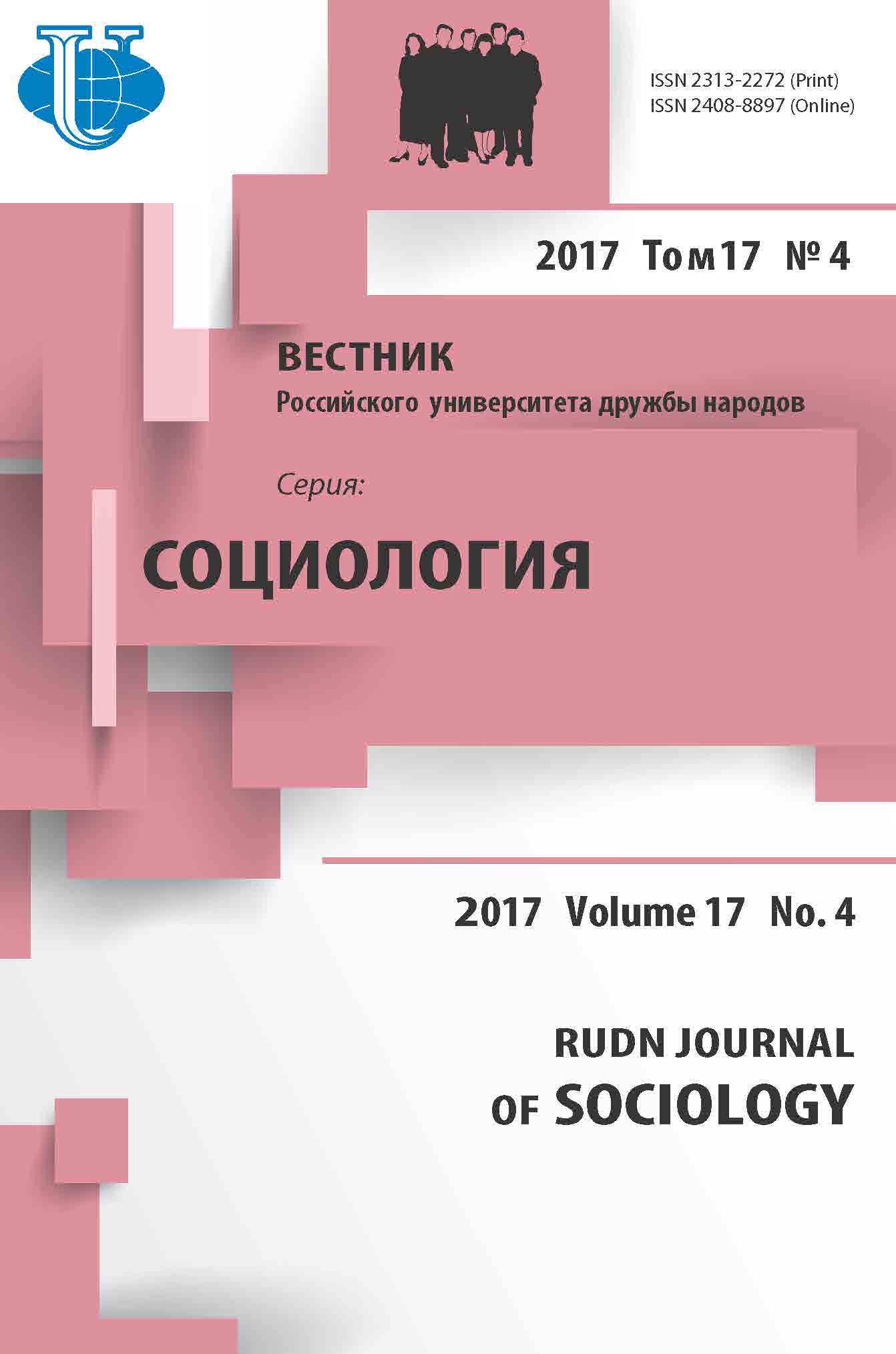SOUTH SUDAN STRUGGLE FOR INDEPENDENCE, AND IT’S IMPLICATIONS FOR AFRICA
- Authors: Kumsa A1
-
Affiliations:
- Charles University in Prague
- Issue: Vol 17, No 4 (2017)
- Pages: 513-523
- Section: Contemporary society: the urgent issues and prospects for development
- URL: https://journals.rudn.ru/sociology/article/view/17293
- DOI: https://doi.org/10.22363/2313-2272-2017-17-4-513-523
- ID: 17293
Cite item
Full Text
Abstract
About the authors
A Kumsa
Charles University in Prague
Email: alemayehu.kumsa@fhs.cuni.cz
U Kříže 8, 15800 Praha 5, Czech Republic
References
- Beshir M.O. The Southern Sudan: Background to Conflict. London; 1968.
- Chabal P. Africa: The Politics of Suffering and Smiling. London-New York; 2009.
- Collins R.O. A History of Modern Sudan. Cambridge University Press; 2008.
- Daly M.W. Darfur’s Sorrow: A History of Destruction and Genocide. Cambridge University Press; 2007.
- Daly M.W. Empire on the Nile: The Anglo-Egyptian Sudan 1898-1939. Cambridge University Press; 1986.
- Deng F. (ed.). Self-Determination and National Unity: A Challenge for Africa. Trenton, NJ and Asmara, Eritrea; 2010.
- Deng F. Dynamics of Identification, Basis for National Integration in the Sudan. Khartoum University Press; 1973.
- Deng F. Identity, Diversity and Constitutionalism in Africa. Washington; 2008.
- Douglas J. The Root Causes of Sudan’s Civil Wars. Oxford; 2003.
- Ehret C. The Civilizations of Africa. A History to 1800.University of Virginia; 2002.
- Grawert E. (ed.). After the Comprehensive Peace Agreement in Sudan. London-New York; 2010.
- Healy S. 2008. Lost Opportunities in the Horn of Africa. How Conflicts Connected and Peace Agreements Unravel. London; 2008.
- Hill R. Egypt in the Sudan. 1820-1881. Oxford University Press; 1959.
- Interim Constitution of Southern Sudan, 2005.
- International Crisis Group, 2002: God, Oil and Country. Changing the Logic of War in Sudan. African Report No. 39.
- Jalata A. (ed.). State Crises, Globalization and National Movements in North-East Africa. London-New York; 2004.
- Jok Madut Jok. Sudan: Race, Religion and Violence. Oxford; 2008.
- Murdock G.P. Africa: Its Peoples and Their Cultural History. New York; 1959.
- Olson J.S. The Peoples of Africa: An Ethohistorical Dictionary. London, Connecticut, Westport; 1996.
- Ottaway M. and D. Ethiopia: Empire in Revolution. New York-London; 1978.
- Prendergast J., Thomas-Jensen C. Blowing the Horn. Foreign Affairs. 2007. March/April.
- Robertson J.W. Transition in Africa: from Direct Rule to Independence. London-Khartoum; 1975.
- South Sudan’s United Nations Membership. http:// www.un.org/en/members/index.shtml.
- Totten S., Markusen E. (eds.) Genocide in Darfur: Investigating the Atrocities in the Sudan. New York-London; 2006.
- Voll J.O. Sudan: State and Society in Crisis. Washington; 1991.
- Wai D.M. The Southern Sudan: The country and the people. The Southern Sudan. The Problem of National Integration. Ed. by Wai Dustan, M. Frank. London; 1973.
- Wodajo Kifle. Conflicts, states and societies in the Horn of Africa. Conflict in the Horn of Africa: What Can Civil Society Do to Bring about Solidarity and Cooperation in the Region? Nairobi, 15-17 March 1999. Addis Ababa; 1999.
Supplementary files













